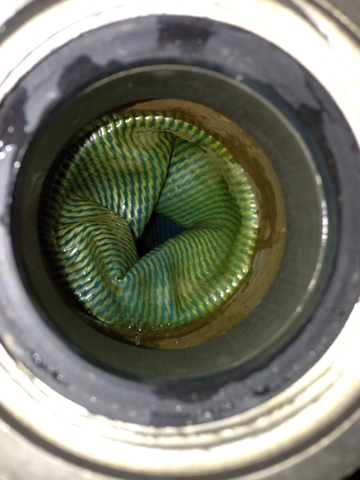Drilling for effectiveness cannot be overstated enough. In posts and articles firefighters and officers are imploring that we, as a fire service, put a heavy emphasis on drilling and training on a regular basis.
Not just when training is scheduled, but everyday we are at the fire house, we must use the equipment and techniques to master our craft and to know the capabilities and intricacies of our equipment and that of ourselves. What have we forgotten? Where are we having difficulties? What do we need to work on more? Where are we slow?
Well, what about small changes in performance? I have been debated that this job just isn't that hard by some who think they know it all. For the sake of this post, lets assume that they do know it all and that they do it perfect every time. But, that's still not a reason not to drill, check it out.
I have done hose drills many times with my crew and I know exactly how long our tank water will last with each line we have and with associated nozzles pressures. We have done it enough know what to expect and how the streams look and what the hose feels like. Our operators know what the motor sounds like and how long he has when the "fill tank" light starts to flash before he gets pressure drop. All of these we know because we drill.
I was working a trade day on a different crew and had an eager group of guys, so after dinner on a Saturday evening, the weather was perfect, we pulled some lines and pumped some water. The firefighter at the nozzle was indicating that the stream looked weak and that the pressure didn't seem right. We emptied that tank and it took much longer than it has in past drills. (We are ordering some in line gauges to help better measure our flow rates.)
We did it again and boosted up the pressure a bit, but we were using a smooth bore and we had no kinks. Same problem, we were only flowing around 110 gpm with that smooth bore. Something was really wrong.
As we broke down the lines we started looking at the hose. We found on one section of hose the inner jacket had separated and was blocking the water flow. A significant finding.
I can remember being a firefighter and doing some drilling. The typical drill was pull the line, flow it and repack it. Fast, easy and not much work. But, also not a lot of attention to detail.
Had we not paid attention to the details in previous drills we would likely not have noticed the flow problem. The trigger was the amount of time it took to empty the tank water. It threw up a big red flag which led us to try it again and then to look for the problem.
We don't want to find these issues during a fire. We figured, non-scientifically that we were losing approximately 75 gallons per minute with this blocking the interior of our attack line. That is a critical failure. Just imagine the loss of flow had there been a kink that went unseen?
The point, be thorough and pay attention to the details when you drill. Working pump pressures and flows, working air and resting air on SCBA, etc. Don't make drilling busy work, make it meaningful. It just might save your life!
Views: 1333
Comment
© 2025 Created by fireeng.
Powered by
![]()


You need to be a member of Fire Engineering Training Community to add comments!
Join Fire Engineering Training Community